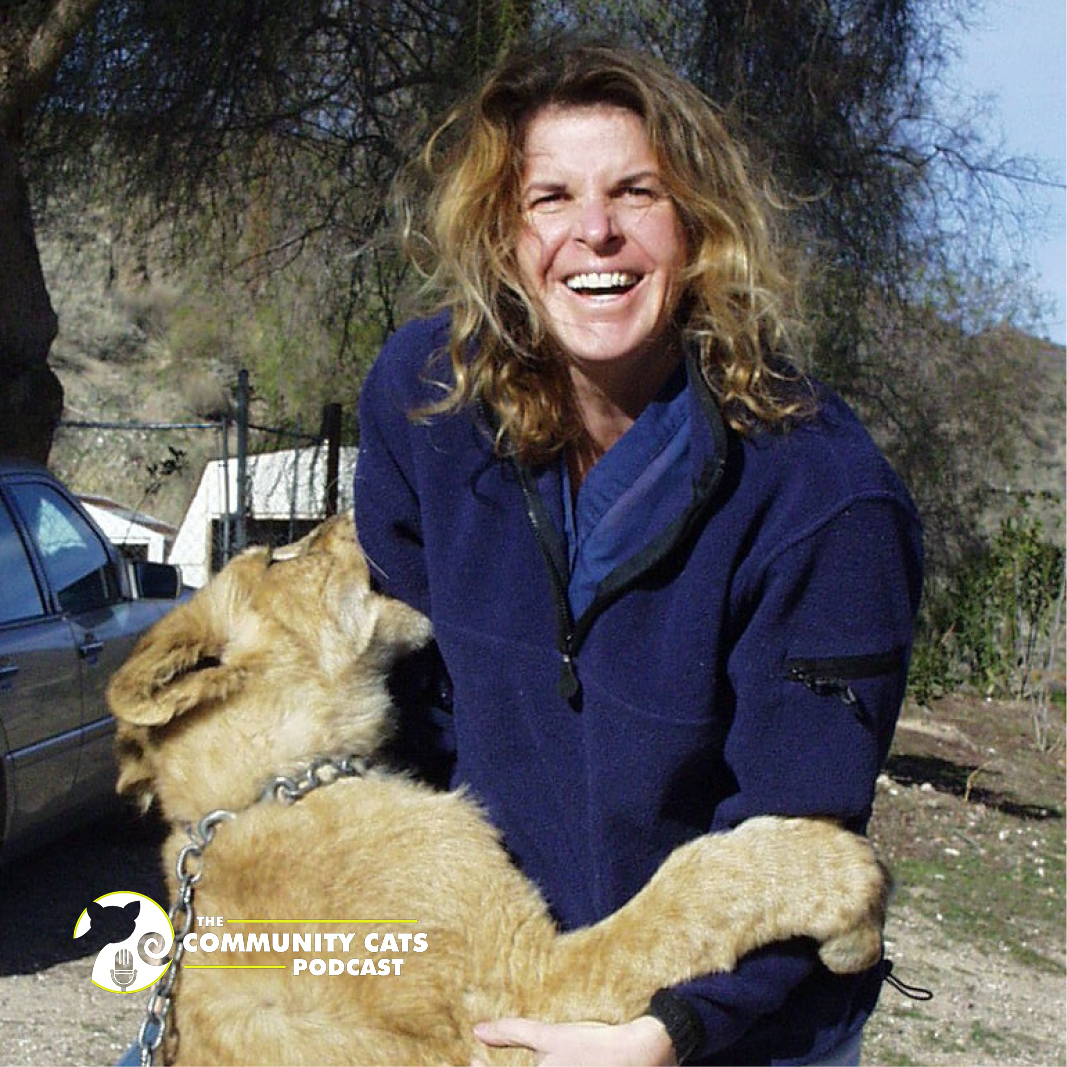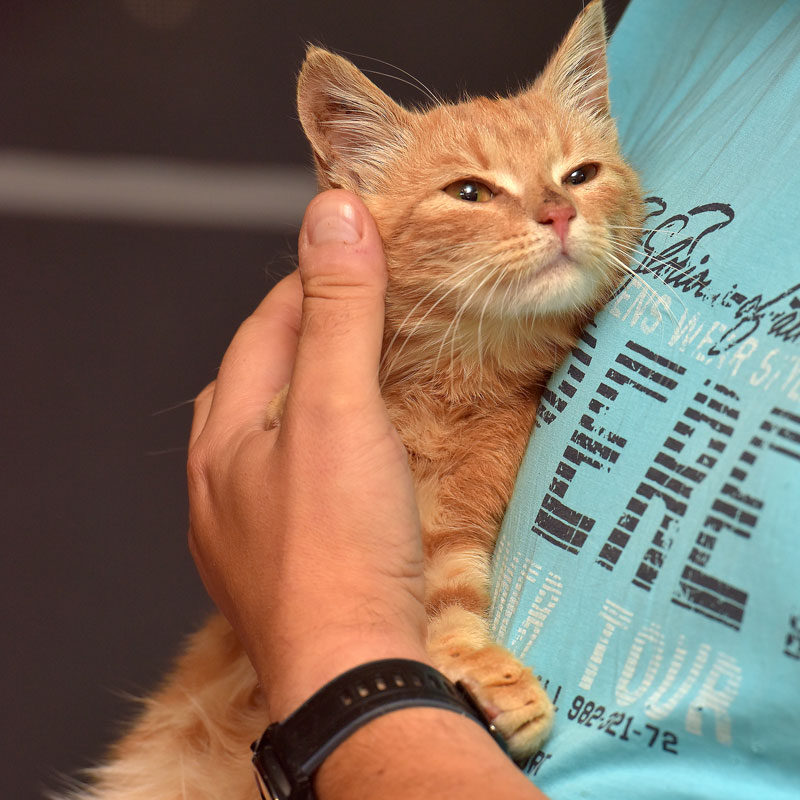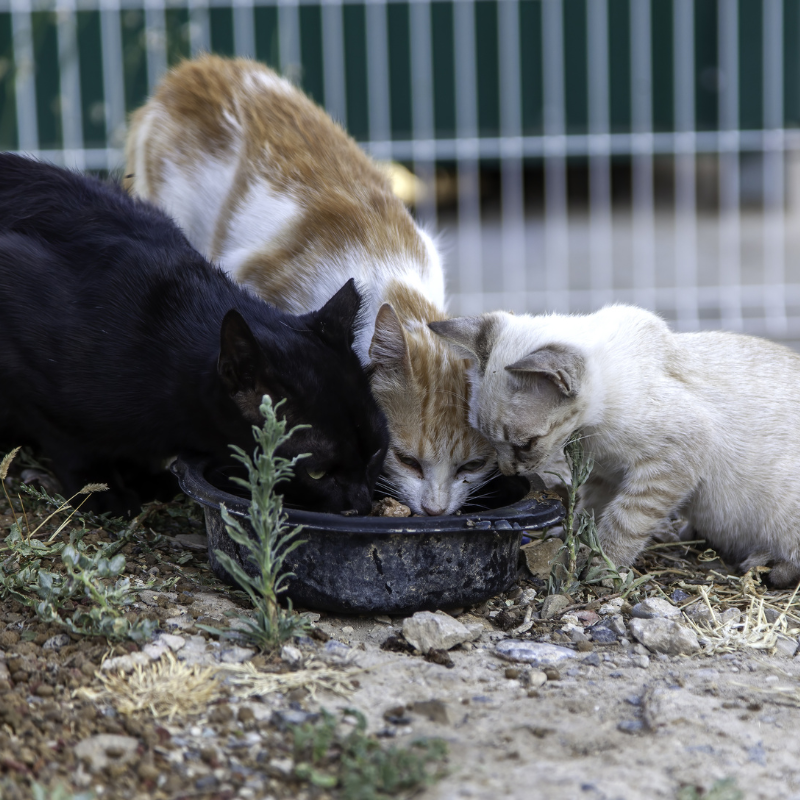
Brad Kriser, Founder of Kriser’s Natural Pet
November 24, 2020
Best of 2020 – Dr. Jennifer Conrad, The Paw Project
December 1, 2020
Today’s guest post comes to us from Krista Beucler, Marketing & Communications Intern at Community Cats Podcast.
Have you considered fostering cats, but aren’t sure about what it will be like? We’ve put together some advice and answers to common questions to help you decide if fostering is right for you.
The fosters we heard from in an anonymous survey ranged from those who have been fostering less than a year to those who have fostered for 20+ years. They started fostering for a variety of reasons including wanting to save feral kittens, wanting to pay it forward after adopting fostered kittens, and having the extra space and time. But the prevailing sentiment was that fosters love animals and want to help cats.
Do you have any tips for first time fosters?
The fosters agreed it is important to be patient, flexible, and unafraid to ask questions. Remember to be patient with yourself and with the shelter staff, who have many responsibilities. Flexibility is especially important these days, since COVID-19 has changed many protocols and procedures at shelters. Many of the fosters cited relying on their foster network as well as the handbook and mentor provided by their shelter.
Here are one foster parent’s tips: “1) Don’t hesitate to contact your mentor [at the shelter]! Your kittens WILL get sick, it’s just what kittens do. Reach out to your mentor as soon as you notice that something is wrong. 2) Set up a spreadsheet to keep track of weights. It will be really helpful if you have to bring in a kitten who is not gaining weight. 3) Use social media to let people know about your kittens. You might be surprised how many people are interested in adopting one of your kitties!”
Several fosters also encouraged knowing yourself and your limits and making sure to communicate that clearly with shelter staff. One elaborated, “Start with a smaller batch of kittens, say two, and work your way up. My last group was six kittens. I learned that was too many for me. They were great kittens and so much fun. All found great homes, so it was a win- win, but you have to know when to pass on a group of kittens.”
Practical tips included weighing your kittens in a big mixing bowl to keep them contained on the scale, and using nail polish of varying colors on the ears of similarly colored kittens to help distinguish them.
“It’s great to have a dedicated room for fosters,” one foster noted, “but the most important thing is time. The more time spent socializing these cats and kittens the better they will do in adoption and life.”
What about feral kittens?
Fosters agreed that feral kittens need lots of human contact. Some recommended basing this around feeding or toys, while others also suggested keeping the kitten in a well-trafficked area, but isolated from other cats.
“If there is more than one, sometimes separating them is helpful,” one foster suggested. “Putting them in a kennel in my [office, which] is high traffic and has a glass door gives them more exposure to people and household activity but also gives them a safe place to be. Toys, especially the feather wand, are often what earns their trust. Go slow!”
One foster parent noted that patience is an especially important aspect of earning a feral cat’s trust: “Feral cats need lots of time and patience. Just sitting in a room with them while you read so they realize you’re not a threat, offering food at their level of comfort. It might be just putting it slightly under the bed where they will slither out and eat and slither back in. It’s all about earning their trust on their timeline.”
Have you worked with bottle babies? What were the challenges of raising kittens so young?
Fosters agreed bottle babies are a big time commitment. It’s especially important to make sure the kittens are fed often enough. One recommended learning to tube feed.
One foster home noted that “once your routine is set, it is great if you can pass your kittens on to someone else when the kittens can eat on their own. [That way] you can save another bottle baby litter. Save more and keep more foster homes engaged.”
What kinds of resources do you need from your shelter to be a successful foster parent?
 The fosters we spoke to were given a foster manual and assigned a mentor from the shelter, which many cited as being particularly important to their success. They also had ways to connect with other fosters from their shelter, which was helpful for asking questions and sharing experiences. Good communication and support was also important, as were resources like food, litter, litter boxes, and toys to help offset the costs of fostering.
The fosters we spoke to were given a foster manual and assigned a mentor from the shelter, which many cited as being particularly important to their success. They also had ways to connect with other fosters from their shelter, which was helpful for asking questions and sharing experiences. Good communication and support was also important, as were resources like food, litter, litter boxes, and toys to help offset the costs of fostering.
But the kittens are all so cute! How do you keep from adopting them all?
Though some fosters noted that they had experienced “foster fails” (when one foster kitten ended up as their permanent pet), most considered mindset an important part of successful fostering.
“We went into this with the understanding that we were really lucky to be able to borrow these babies for the time we had them,” one foster said. “I have two kids, twelve and fourteen, and they’ve been great about it. I think it’s been a wonderful experience for them to learn some selflessness.”
“You are their guide to their forever home,” said one respondent. Another added, “If you don’t think you can let your fosters go to adopters, go to an adoption event and meet the adopters. So many people are looking to give kitties their best life!”
Some fosters also try to keep in contact with adopters so they have the opportunity to get updates as their fosters grow up in their forever home.
One foster noted that one of their favorite aspects of fostering is that “you get the fun of the kittens, but when they turn into ‘teenagers,’ they get to find their forever homes. The reward is watching the face of the adopters when they get their kitten. It is priceless.”
Another pointed out that balance is key: “I know that if I keep all the kittens I want to, I won’t have any room left to foster kittens. So I have to remind myself that it’s a balance.”
Overwhelmingly, the fosters we spoke with love the experience of fostering kittens. Do you foster cats or kittens? We’d love to hear about your experiences!
 Originally from Colorado, Krista Beucler received a Bachelor of Arts in creative writing at the University of Mary Washington (UMW) in Virginia. She was the editor-in-chief for Issue 7.2 of the Rappahannock Review, the literary journal published by UMW. Krista’s creative work has been published in From Whispers to Roars literary magazine. She is spending COVID-19 at home with her cats.
Originally from Colorado, Krista Beucler received a Bachelor of Arts in creative writing at the University of Mary Washington (UMW) in Virginia. She was the editor-in-chief for Issue 7.2 of the Rappahannock Review, the literary journal published by UMW. Krista’s creative work has been published in From Whispers to Roars literary magazine. She is spending COVID-19 at home with her cats.




